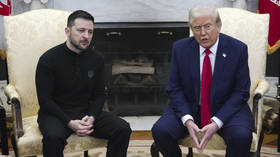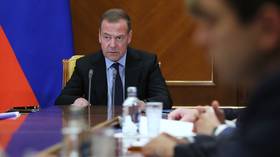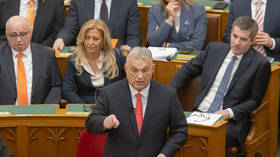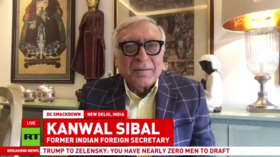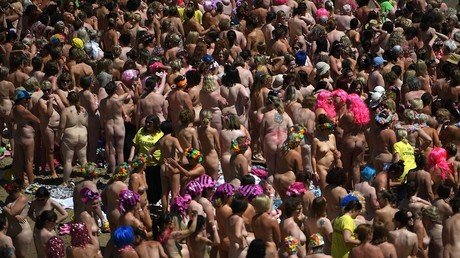Tulsi most-Googled candidate during debate… raising questions over ‘muted’ Twitter trend
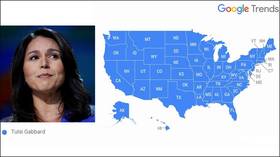
While presidential challenger Tulsi Gabbard was the most searched for candidate on Google during the second round of Democratic debates, her rankings on Twitter stoked accusations that results were being manipulated.
Ahead of the Wednesday night debate, former VP Joe Biden dominated Google’s search rankings. But Tulsi came out the clear winner across all fifty US states after the event started. Directly trailing Tulsi in the search trends was California Senator Kamala Harris at number two, while Biden held onto third place.
Before and after: the #DemDebate candidates in search.https://t.co/I0WiP7r7bt#CNNDebatepic.twitter.com/5wTwPbebDo
— GoogleTrends (@GoogleTrends) August 1, 2019
By large margins, Gabbard also repeated her victory in separate online polls organized by conservative media outlets, crushing Breitbart News’ poll with 50 percent of the vote, and winning out in the Drudge poll at 39 percent.
The dovish Hawaii Congresswoman likely bolstered her search numbers in tangling with her fellow Democrats on stage, drawing wide praise and attention online after confronting Harris on her tough-on-crime record as a criminal prosecutor.
Also on rt.com Tulsi Gabbard dismantles Kamala Harris over her prosecutor record during Dem debateContrasting her rankings on Google, Tulsi didn’t perform quite as well in Twitter’s “trending” category, a fact many on social media found suspicious. Some users suggested Tulsi was being deliberately “throttled” by Twitter to limit her reach on the platform.
Why did you remove Tulsi from trending @Twitter ? pic.twitter.com/GKmrBwpPw0
— The Red-Headed Libertarian (@TRHLofficial) August 1, 2019
A number of commenters also thought it strange that Syrian President Bashar Assad made it into Wednesday’s trends ahead of Tulsi, despite her name consistently dominating that of Assad’s in Google searches.
Somehow I have a hard time believing that “Assad” is the top trending item in the United States but “Tulsi” is nowhere to be found pic.twitter.com/SG35ihSKRh
— Michael Tracey (@mtracey) August 1, 2019
Others went into more detail in their speculation, with one user noting, in a lengthy thread, that at least one member of Twitter’s communications staff previously worked for Kamala Harris.
I'm sure @NickPacilio has nothing to do with why Assad is trending #1 for me while Tulsi Gabbard will not appear in the United States trends at all. Hey Nick care to explain why @TulsiGabbard won't appear on the trends list correctly? How is this not blatant political censorship? pic.twitter.com/ex8w7gIOSq
— Currie Dobson (@Ventuckyspaz) August 1, 2019
Skeptics argued that Twitter’s algorithm, coupled with individually-tailored results and settings, were behind the discrepancies. Others suggested that the theory doesn’t add up, because hashtag “KamalaHarrisDestroyed” trended later.
Also, if Twitter was suppressing Tulsi, I don’t think they’d have her breakout moment of the debate trend — because that’s what the anti-Kamala hashtag is all about. So Tulsi might not be trending right now, but her big moment at the debate is, which still gains her exposure.
— Dylan Els (@dylanels_) August 1, 2019
However, this is far from the first time questions have been raised over whether Twitter and other platforms are purposely skewing what users see in terms of trends. Notably, during the 2016 election, conservative critics accused Google of returning search results favorable to Hillary Clinton over other candidates, though the tech giant denied its searches were biased.
Last week, Tulsi filed a $50 million lawsuit against Google, arguing the company abridged her right to free speech by suspending her advertising account after the first round of Democratic debates; she also accused the company’s email service, Gmail, of auto-flagging her campaign’s emails as junk mail at “a disproportionately high rate” in contrast to other candidates.
If you like this story, share it with a friend!



